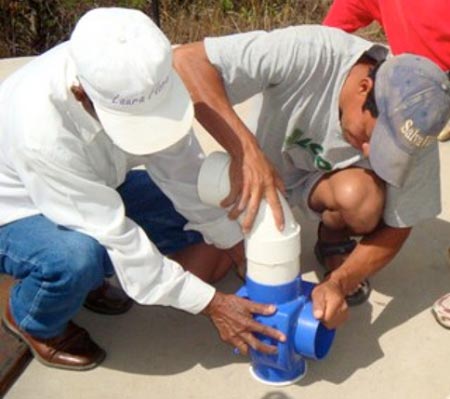


Today, many rural communities in Central America have access to some sort of water systems infrastructure thanks to investments made by national and international aid institutions. However, these communities often lack the appropriate technical skills to operate these water systems. As a result water systems are either abandoned or poorly managed and most of this valuable infrastructure has fallen into disrepair. This raises serious public health concerns, especially for children and the elderly – the most vulnerable people to gastrointestinal diseases.
Since 1989, the International Center's Clean Water Initiative has brought clean drinking water to communities in need in rural Central America. Rather than building water infrastructure, the International Center focuses on empowering local people to take the lead on building and operating their own water systems through the innovative " Circuit Rider Program." Twenty years of experience in rural communities in Honduras, through the Asociación Hondureña de Juntas Administradoras de Sistemas de Agua (AHJASA), and in El Salvador through the Association of Water Systems (ASSA) have proven the success of this program. Since its creation, over 720 communities have joined the Circuit Rider program across Honduras and El Salvador. The program is also gradually expanding to other Central American countries including Guatemala, Nicaragua and Belize, and the Dominican Republic in the Caribbean.
The Circuit Rider program is modeled after a community-based program instituted by the National Rural Water Association (IRWA) over 25 years ago in the United States. In this program, qualified individuals (traditionally doctors, judges and ministers) travel from community to community providing essential services in areas such as water and sanitation. In Honduras, water technicians regularly visit rural community water systems in their assigned districts. During these visits, they meet with the community waterboards to discuss problems, track progress, inspect water systems and double-check the records to verify financial sustainability. They also meet with the community at large to ensure local involvement.